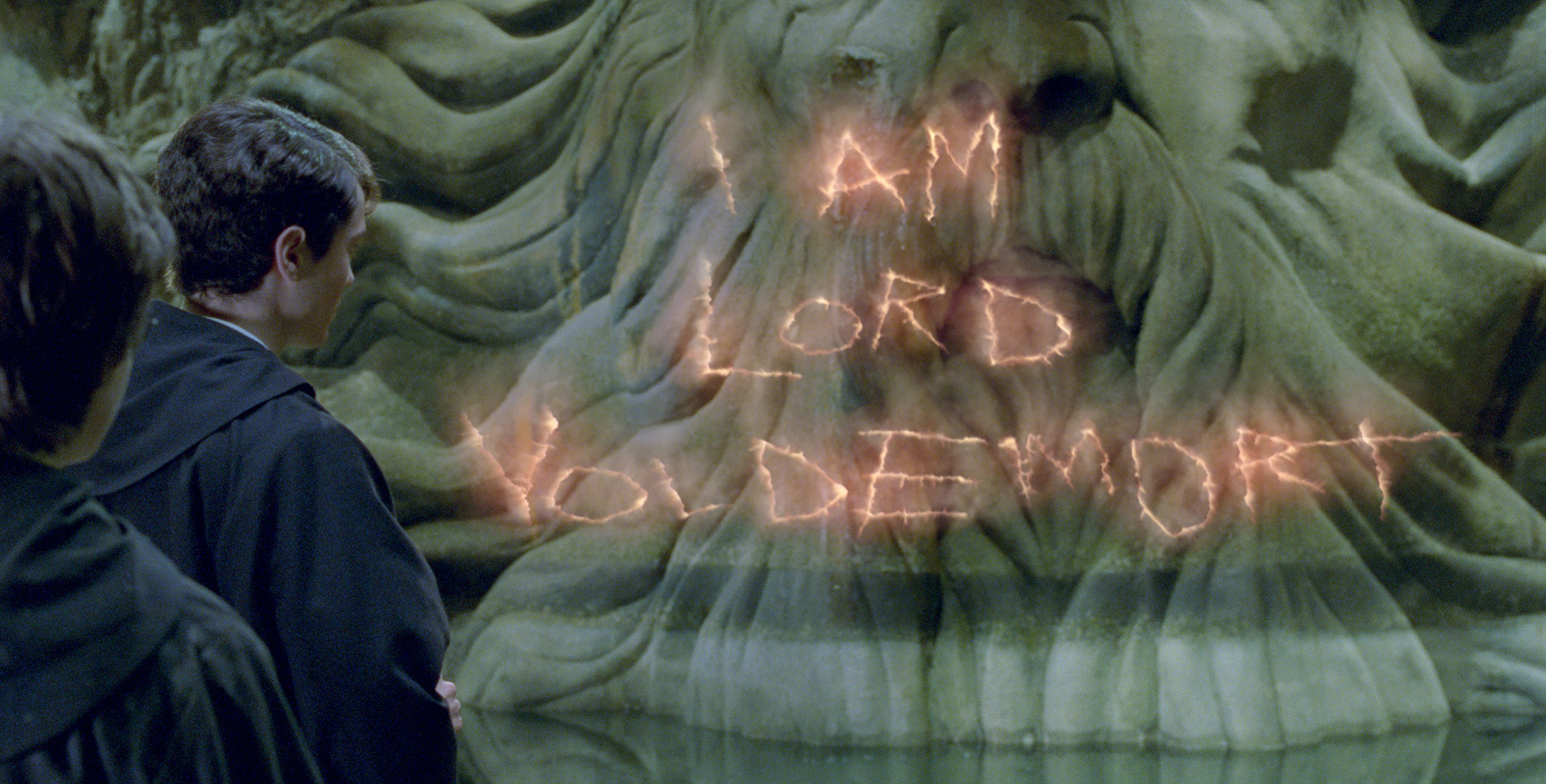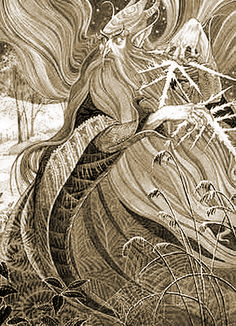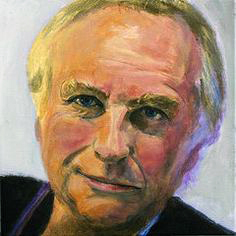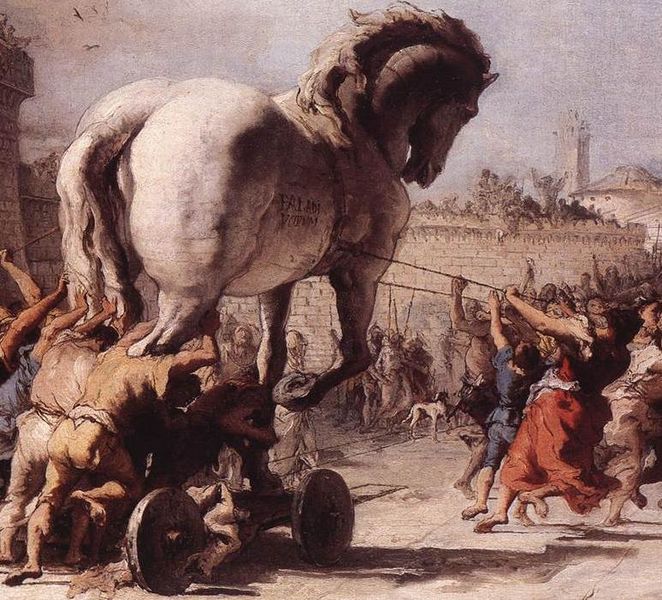by Evropa Soberana
Christian domination
In the Middle Ages, through persecution resulting in actual death, life imprisonment and banishment, the free thinking, progressive and intellectual elements were persistently eliminated over large areas, leaving the perpetuation of the race to be carried on by the brutal, the servile and the stupid. It is now impossible to say to what extent the Roman Church by these methods has impaired the brain capacity of Europe. (Madison Grant, The Passing of the Great Race).
The coming of Christianity plunged classical philosophy into centuries of near-oblivion and clashed with the established and ancient European belief in the inequality of men. Spreading first among the slaves and lowest classes of the Roman empire, Christianity came to teach that all men were equal in the eyes of a universal Creator God, an idea that was totally alien to older European thought which had recognized a hierarchy of competence among men and even among the gods.
Opposing the traditions of classical philosophy and scientific enquiry, Christianity introduced the concept of a single, omnipotent “God of History” who controlled all the phenomena of the universe with men and women being creations of that God. Since all men and women were the ‘children of God’, all were equal before their Divine Maker! Faith in the church’s interpretation of supposedly prophetic revelations became more important than scientific or philosophical enquiry; and to question the church’s view of reality came to be perceived as sinful. (Eugenicist Roger Pearson, ‘The Concept of Heredity in the History of Western Culture’, Part I).
Primitive Christianity represented an atrocious trauma for the West and the European collective unconscious. It swept away the teachings of the classics and only very slowly could Europe recover, step by step, re-conquering and gathering the scattered pieces of wisdom that had been hers and that suffered destruction at the hands of fanatic parasites, poisoned by the desert dogma virus.
 The Church had a foreign and anti-European concept of God, taken directly from the Bible. When the early Judeo-Christians taught that God had incarnated in a Jew who died at the hands of the strong (the Romans) for the ‘salvation’ of the weak and sinful—the slaves, the sick, the criminals, the prostitutes, the excrement of the Roman streets and throughout the Empire—, they were laying the groundwork for an atrocious trauma from which European man has never recovered.
The Church had a foreign and anti-European concept of God, taken directly from the Bible. When the early Judeo-Christians taught that God had incarnated in a Jew who died at the hands of the strong (the Romans) for the ‘salvation’ of the weak and sinful—the slaves, the sick, the criminals, the prostitutes, the excrement of the Roman streets and throughout the Empire—, they were laying the groundwork for an atrocious trauma from which European man has never recovered.
In fact, under more modern forms (‘solidarity’, ‘humanitarianism’, ‘equality’, cowardice, sedentary lifestyle, herd mentality, servility, pacifism, conformism) almost all modern Westerners drag variations of such Christian ballast. In the above image, the crucified Christ by Velázquez, the talent of a great Spanish painter was wasted with a strange anorexic, passive and masochistic Jewish idol, instead of some triumphant pagan god.
European populations, especially Celts, Germans, Balts and Slavs—who had always been instinctively governed by eugenic principles—were suddenly engulfed in a misunderstood humanism, which had fermented in the crowded and dirty cities of the Eastern Mediterranean. Christianity frustrated any eugenic, biological and pro-natural possibility for centuries and centuries, so we should not be surprised at the shortage of eugenic testimonies in that era.
In Christendom heretical groups such as the Cathars, the Templars, the alchemists, the old Masons, the Rosicrucians, certain religious orders (orders that accumulated knowledge, such as the Franciscans, Benedictines, Cistercians) and, of course, the Renaissance, could have meant a great change for Europe and a flip-flop for the Church had it not been thwarted by Protestantism, the Reformation, the Counter-Reformation and the Thirty Years War (1618-1638).
This war meant the end of the paganising alternative, the fall of the Holy Empire and the death of a third of the total German population, inaugurating a repulsive period of plagues, famines, religious hysteria, internal wars and witch hunts that devastated the Germanic European layers of better biological quality (Huguenots, Quakers) until Christian authority started to lose strength and credibility in favour of even more dangerous dogmas: the ‘Enlightened’ dogmas.
Therefore, if there is anything salvageable from the Middle Ages it is, undoubtedly, the ‘other’ Middle Ages of castles, knights, troubadours, crusaders and princesses. Three institutions deserve mention: the cavalry, the nobility and the Holy Empire.
When the descriptions of the great characters of the time are read or someone examines the skeleton of a prominent king, there is nothing but awe: Emperor Charlemagne (742-814) measured more than two metres; Roland, his paladin, was also described as a giant; the Norwegian king Harald Hardrada (1015-1066) measured seven feet, that is, approximately 2.10 metres; the redhead Sancho VII the Strong (1194-1234), king of Navarra, measured even more; Jaime I the Conqueror (1208-1276), king of Aragon, was described as a giant, and the same goes for the first Crusade kings of Jerusalem.
All these men were, in addition to heroes of their time, giants of genetics belonging to a practically extinct lineage—but likely to be resurrected by an appropriate selective bio-politics. As the Spanish author Enrique Aynat wrote, ‘The Nobility, like it or not, has natural causes. It was born from the primitive inequality of talents and characters. It has remained a sought and conscious selection, set by an institution. The Indo-European had naturally accepted ,without coercion, the superiority of the Nobility knowing that it had left families that, both physically and morally, represented the summum of the selection’ (Eugenesia, Editor’s translation).
Roger Bacon (1214-1294) and Francis Bacon (1561-1626).

Roger Bacon was an English Franciscan friar greatly ahead of his time. A compulsive scholar, in his work he wrote treatises on grammar, physics, optics, mathematics and philosophy. He was even interested in the manufacture of gunpowder and the situation and size of celestial bodies.
Long before Leonardo Da Vinci, Galileo and the Renaissance, Roger Bacon foresaw the invention of flying devices and steamboats, and in his detailed optical studies he anticipated the possibility of designing artefacts such as microscopes, telescopes and glasses. Along with his revolutionary alchemical experiences, all this was considered suspicious of heresy in his time and he became imprisoned. Roger Bacon died forgotten and fell out of favour.
 Three centuries later, natural philosophers like Bruno and Francis Bacon rehabilitated Bacon’s reputation and portrayed him as a scientific pioneer.
Three centuries later, natural philosophers like Bruno and Francis Bacon rehabilitated Bacon’s reputation and portrayed him as a scientific pioneer.
Although it seems innocuous, the phrase by Francis Bacon I quote below is inconceivably heretical. It suggests that man is subordinate to Nature and the same principles can be applied to animals.
Naturam non vinces nisi parendo (‘You will not master nature unless you obey it’).
______ 卐 ______
Note of the Editor: I have redacted the above passages because in the original text there is confusion between Roger Bacon and Francis Bacon. Even today, with their anti-Nordicism and Christian ethics, white nationalists are not obeying Nature. (As to his Christian ethics, see what I said about Greg Johnson this Monday.)
______ 卐 ______
Sir Thomas More (1478-1535) was a lawyer, statesman, a friend of Erasmus and an English writer known for his Utopia where he disguised his ideas of state leadership under the science-fiction genre.
In Utopia there is a eugenic policy very similar to the Spartan, where the couple should, first of all, look naked to find out what kind of person they married in terms of genetic qualities. Thomas More criticised such an idea to escape the possible religious repression, but what he does is expose it to the public eyes. He would be beheaded for refusing to recognise King Henry VIII as head of the Church in England. For that reason alone the Catholic Church canonised him.
In choosing their wives they use a method that would appear to us very absurd and ridiculous, but it is constantly observed among them, and is accounted perfectly consistent with wisdom. Before marriage some grave matron presents the bride, naked, whether she is a virgin or a widow, to the bridegroom, and after that some grave man presents the bridegroom, naked, to the bride.
We, indeed, both laughed at this, and condemned it as very indecent. But they, on the other hand, wondered at the folly of the men of all other nations, who, if they are but to buy a horse of a small value, are so cautious that they will see every part of him, and take off both his saddle and all his other tackle, that there may be no secret ulcer hid under any of them, and that yet in the choice of a wife, on which depends the happiness or unhappiness of the rest of his life, a man should venture upon trust, and only see about a handsbreadth of the face, all the rest of the body being covered, under which may lie hid what may be contagious as well as loathsome. (Utopia, published in 1516).
 William Penn (1644-1718). A member of the Puritan religious society of the Quakers, he emigrated to America for religious persecution in Britain and founded the province, now a state, of Pennsylvania. Many of the political principles he adopted there laid the foundations for the subsequent American Constitution. Penn represented the old Puritan English race, considered as foundational for the United States. He was held in high regard by the later American eugenicists that we will see later.
William Penn (1644-1718). A member of the Puritan religious society of the Quakers, he emigrated to America for religious persecution in Britain and founded the province, now a state, of Pennsylvania. Many of the political principles he adopted there laid the foundations for the subsequent American Constitution. Penn represented the old Puritan English race, considered as foundational for the United States. He was held in high regard by the later American eugenicists that we will see later.
Men are generally more careful of the breed of their horses and dogs, than of their children (Reflections and Maxims, 1693).

Thomas Malthus (1766-1834), an English economist and demographer, was the first to point out that the world’s population grew faster than resources grew; that overpopulation was a danger, that natural resources were limited and that man was bound to hunger, conflict and epidemics if he did not behave responsibly as to his reproduction, hence the expression ‘Malthusian catastrophe’.
It does not, however, by any means seem impossible that by an attention to breed, a certain degree of improvement, similar to that among animals, might take place among men. Whether intellect could be communicated may be a matter of doubt: but size, strength, beauty, complexion, and perhaps even longevity are in a degree transmissible…
As the human race, however, could not be improved in this way, without condemning all the bad specimens to celibacy, it is not probable that an attention to breed should ever become general; indeed, I know of no well-directed attempts of this kind, except in the ancient family of the Bickerstaffs, who are said to have been very successful in whitening the skins and increasing the height of their race by prudent marriages, particularly by that very judicious cross with Maud, the milk-maid, by which some capital defects in the constitutions of the family were corrected. (‘An Essay on the Principle of Population’, 1798).
 Frederick the Great (1712-1786), King of Prussia, an example of strategic-tactical genius, top-notch politician and one of the most brilliant military commanders of all time, colonised the East with German peasants and pushed Prussia into the category of a European superpower. At his death he had laid the foundations of what in the 19th century would become the Second Reich.
Frederick the Great (1712-1786), King of Prussia, an example of strategic-tactical genius, top-notch politician and one of the most brilliant military commanders of all time, colonised the East with German peasants and pushed Prussia into the category of a European superpower. At his death he had laid the foundations of what in the 19th century would become the Second Reich.
It is unpleasant to see the work that is taken under our harsh climate to grow pineapples, bananas and other exotic fruits, while dealing little with human prosperity. At any event, man is more important than all bananas together. He is the plant to cultivate, which deserves all our attention because he represents the pride and glory of our country.
Benjamin Franklin (1706-1790), politician, inventor, scientist and one of the Founding Fathers of the United States. His ideas about freedom, finance, banking and independence opposed him to the great powers of his time. In a letter to a doctor, Franklin observed:
Half the lives you save are not worth saving, as being useless, and almost all the other half ought not to be saved, as being mischievous. Does your conscience never hint to you the impiety of being in constant warfare against the plans of Providence?
 Arthur Schopenhauer (1788-1860), a German philosopher who was influenced by Plato, Hinduism, Buddhism, Goethe and who in turn influenced Wagner, Nietzsche and Hitler himself. Schopenhauer attached great importance to the will as a universal force, restored dignity to Nature, spoke about the importance of the species, denied the validity of Christianity and made important criticisms of the faulty tenets of Western civilisation; criticisms that led him to defend eugenic policies.
Arthur Schopenhauer (1788-1860), a German philosopher who was influenced by Plato, Hinduism, Buddhism, Goethe and who in turn influenced Wagner, Nietzsche and Hitler himself. Schopenhauer attached great importance to the will as a universal force, restored dignity to Nature, spoke about the importance of the species, denied the validity of Christianity and made important criticisms of the faulty tenets of Western civilisation; criticisms that led him to defend eugenic policies.
If we now connect the conviction we have gained here of the inheritance of the character from the father and the intellect from the mother with our earlier investigation… we shall be led to the view that a real and thorough improvement of the human race might be attained to not so much from without as from within, thus not so much by instruction and culture as rather upon the path of generation.
Plato had already something of the kind in his mind when in the fifth book of his Republic he set forth his wonderful plan for increasing and improving his class of warriors. If we could castrate all scoundrels, and shut up all stupid geese in monasteries, and give persons of noble character a whole harem, and provide men, and indeed complete men, for all maidens of mind and understanding, a generation would soon arise which would produce a better age than that of Pericles. (The World as Will and Representation, Vol. II).
The English imperial aristocracy. The British ruling class that took England to very high levels of glory during the 18th, 19th and 20th centuries is considered of Germanic heritage, owing its blood mainly to Anglo-Saxons and Normans. Its system of upbringing and selection, as its militaristic orientation, was admired even by Nazis such as Günther, Darré, Hitler, Rosenberg and Savitri Devi who saw in the Anglo-Saxon countryside the repetition of Germanic ideas that continued alive in North America and Australia. Their mentality is summed up in the maxim ‘To breed, to bleed, to lead’.

As examples of the nation that gave birth to eugenics, we see here two members of the British ruling class, so reminiscent of the Roman patricians. Left, Charles George Gordon (1833-1885), famous for victorious campaigns in China and Egypt, and for being killed as governor of Sudan during the Mahdi rebellion. Right, Reginald Dyer (1864-1927), a veteran of endless campaigns in India, Pakistan, Burma and Afghanistan. In his time he was criticised by some (‘bloodthirsty madman who murdered hundreds of innocents’) and praised by others (‘he avoided the killing of whites throughout India’).
 In the novels, the left door at the entryway to the House of Black and White in Braavos is made of white weirwood, and the right side door is made of black ebony. The TV series reversed this for unknown reasons.
In the novels, the left door at the entryway to the House of Black and White in Braavos is made of white weirwood, and the right side door is made of black ebony. The TV series reversed this for unknown reasons. Very far from Braavos we see the silhouette of Podrick on horseback, Brienne’s squire, after they spot Sansa down in the vast north.
Very far from Braavos we see the silhouette of Podrick on horseback, Brienne’s squire, after they spot Sansa down in the vast north.














